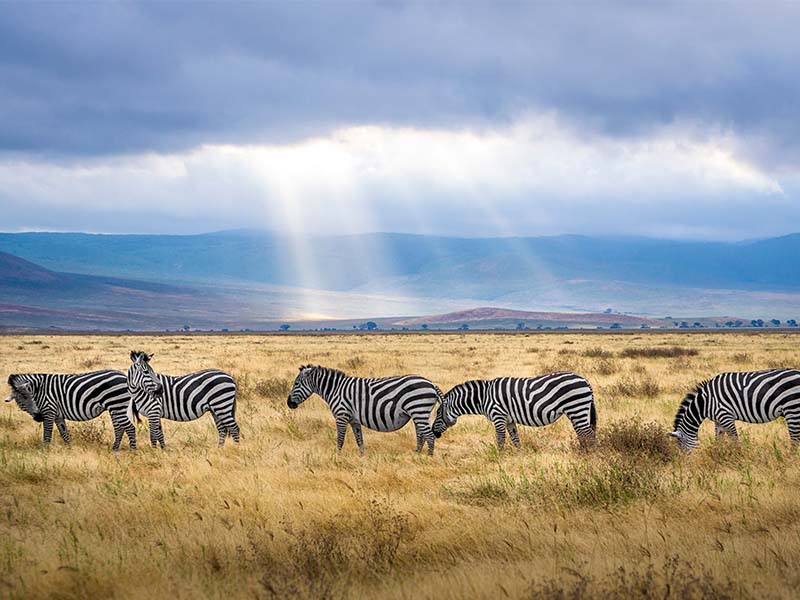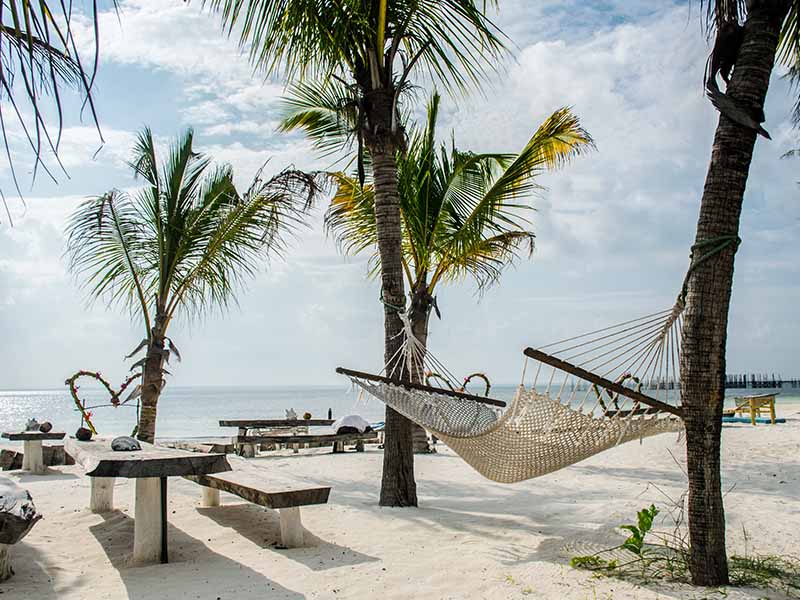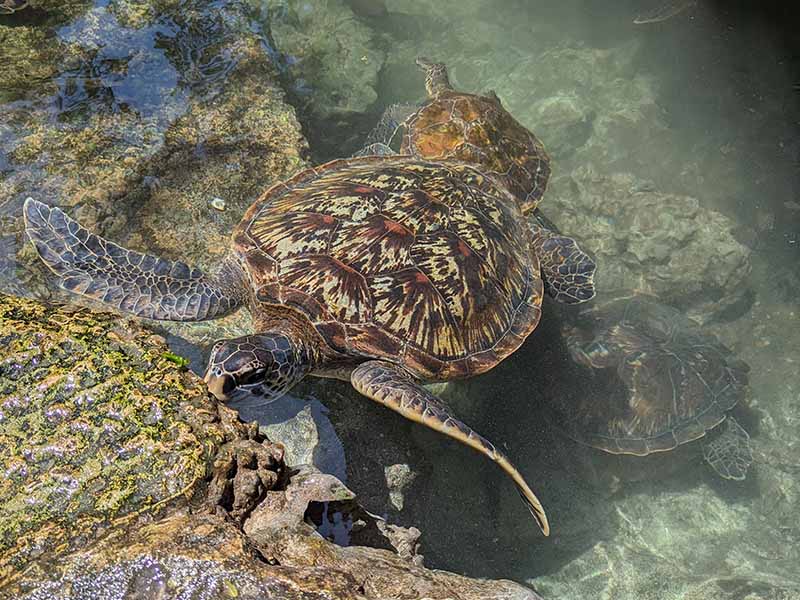Tanzania is a country in East Africa, known for its diverse wildlife, stunning landscapes, and rich culture. From the vast plains of the Serengeti to the majestic Mount Kilimanjaro, Tanzania Tourism offers a multitude of experiences for travelers. The country is also home to the famous Zanzibar archipelago, known for its pristine beaches and vibrant local markets. In addition to its natural beauty, Tanzania tourism boasts a vibrant culture with over 120 ethnic groups, each with its own traditions and languages. As you plan your trip to Tanzania, you can look forward to an unforgettable adventure filled with natural wonders and cultural richness.
Choosing the best time to visit Tanzania
The best time to visit Tanzania for wildlife viewing is during the dry season, from June to October. The weather is pleasant, and animals gather around water sources, making it easier to spot them. The peak season for safaris is from July to March. If you want to witness the Great Migration in Serengeti National Park, plan your trip between January and February when the wildebeest give birth.
Understanding visa and entry requirements
Before you plan your trip to Tanzania tourism , it's important to understand the visa and entry requirements. Here are a few things to keep in mind:
- Most visitors need a tourist visa to enter Tanzania, which can be obtained upon arrival at the airport or at the border.
- The visa fee varies depending on your nationality, so it's best to check the current requirements before your trip.
- Make sure your passport is valid for at least six months beyond your planned departure date from Tanzania. This is a common requirement for many countries and ensures a smooth entry and exit from the country.
Understanding the visa and entry requirements beforehand will help you avoid any travel hiccups and ensure a seamless start to your Tanzania tourism experience.
Planning your itinerary: must-visit destinations
When planning your trip to Tanzania, there are several must-visit destinations that you should include in your itinerary. These destinations offer unique experiences and breathtaking scenery that you won't want to miss. Some of the must-visit destinations include:
- Serengeti National Park: Known for its stunning wildlife and the annual wildebeest migration, the Serengeti is a must-visit destination for nature enthusiasts and wildlife lovers.
- Ngorongoro Crater: This UNESCO World Heritage site is home to a diverse range of wildlife and offers stunning views of the crater's unique ecosystem.
- Mount Kilimanjaro: If you're up for a challenge, consider adding a trek to the summit of Mount Kilimanjaro to your itinerary. The highest mountain in Africa offers a once-in-a-lifetime adventure and stunning views of the surrounding landscapes.
- Zanzibar: This picturesque island off the coast of Tanzania is renowned for its beautiful beaches, rich history, and vibrant culture. It's the perfect place to unwind and soak up the sun after your Tanzanian adventure.
By including these must-visit destinations in your itinerary, you can ensure that your trip to Tanzania is filled with unforgettable experiences and incredible sights.
Accommodation options in Tanzania Tourism
There are several accommodation options to consider for your trip to Tanzania. These include luxury lodges, tent camps, budget hotels, and guesthouses. Each option offers its own unique experience and has varying prices to fit different budgets. Moreover, it’s important to book your accommodation well in advance, especially during peak tourist seasons, to ensure you have the best selection and prices. Keep in mind that the type of accommodation you choose will greatly impact your overall experience while exploring the stunning landscapes and wildlife of Tanzania.
Transportation within Tanzania
To get around Tanzania, you have several transportation options to choose from. Here's what you should know:
- Public transportation: Buses and daladalas (minibusses) are the most common means of public transport in Tanzania. They are affordable but can be crowded and have erratic schedules.
- Taxis: Taxis are available in cities and towns, and it's essential to negotiate the fare before starting the journey. Make sure to choose registered taxis for safety.
- Car hire: Renting a car gives you the flexibility to explore at your own pace. However, driving conditions can be challenging, so make sure to check the condition of the roads and consider hiring a local driver.
Safaris and wildlife experiences
When planning a trip to Tanzania for safaris and wildlife experiences, it's essential to consider the following factors:
- Tanzania is home to some of the most renowned national parks and wildlife reserves in Africa, such as the Serengeti National Park and the Ngorongoro Crater. These provide excellent opportunities for game drives, where you can spot the Big Five and numerous other species in their natural habitat.
- Consider the best time to visit, which is typically during the dry season (from June to October), as this is when the animals congregate around water sources, making wildlife spotting easier.
- It's important to book your safari with a reputable tour operator that offers knowledgeable guides and responsible wildlife viewing practices. This will ensure a memorable and ethical experience.
- Additionally, research the diverse wildlife experiences available, such as walking safaris, birdwatching, and cultural interactions with local tribes, to make the most of your trip.
Cultural experiences and local customs
When planning your trip to Tanzania, it's important to understand the local customs and cultural experiences you may encounter. Embracing the local customs can enhance your travel experience and help you connect with the Tanzanian people. Here are some key cultural insights to keep in mind:
- Greeting Etiquette: Tanzanians often greet each other with a handshake and a warm smile. Handshakes are customary and are often accompanied by inquiries about well-being and family.
- Respect for Elders: In Tanzanian culture, elders are highly respected, and it is customary to greet them first when entering a room.
- Dress Code: When visiting local communities or religious sites, it is respectful to dress modestly. Women should consider covering their shoulders and knees, and both men and women should remove their hats when entering a religious building or a local's home.
- Food and Dining: If invited to a Tanzanian's home for a meal, it is polite to accept the offer and remove your shoes before entering the house.
- Language: Swahili is the national language of Tanzania, and while English is widely spoken, learning a few basic Swahili phrases can demonstrate your respect for the local culture.
Understanding and appreciating these cultural aspects can greatly enhance your experience when visiting Tanzania.
Packing essentials for your Tanzania trip
When packing for your Tanzania trip, make sure to bring the following essentials:
- Lightweight and breathable clothing to cope with the warm weather.
- Insect repellent and sunscreen to protect yourself from bug bites and sunburn.
- A good pair of walking shoes for outdoor activities and exploring the national parks.
- A travel adapter to charge your devices since the electrical outlets in Tanzania may differ from those in your home country.
When planning for a trip to Tanzania, consider these tips for an unforgettable experience:
- Ensure to pack appropriate clothing for diverse climates, including light and breathable clothing for the coast and warmer regions, and warmer clothes for the cooler highland areas.
- Book a safari adventure to witness the stunning wildlife and natural landscapes, and consider visiting during the dry season for optimal game viewing opportunities.
- Immerse yourself in the local culture by interacting with the Maasai people and visiting traditional villages to gain a deeper understanding of Tanzanian traditions.
Explore the beautiful beaches and marine life by visiting the island of Zanzibar, and indulge in the vibrant local cuisine and fresh seafood.
By keeping these tips in mind, you can enhance your Tanzania tourism experience and create lasting memories of this incredible destination.


